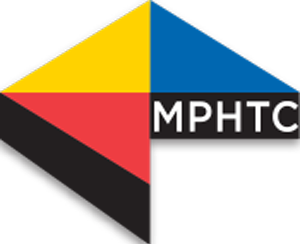
Storytelling for Public Health
How can you effectively convey your public health message using storytelling?
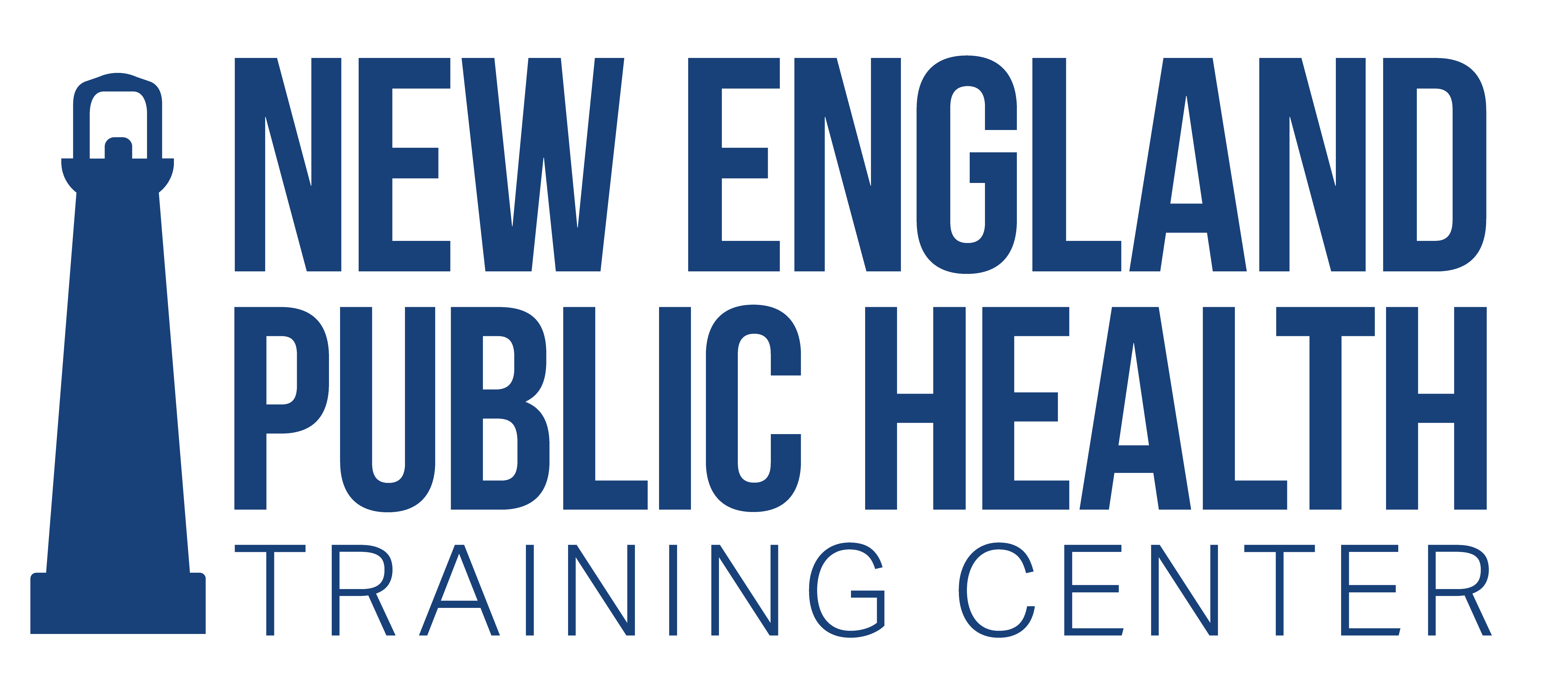

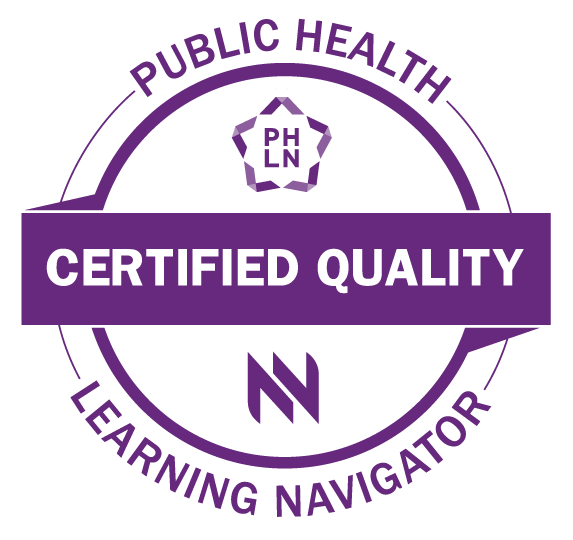
Course Information
- Audience: Public health professionals, especially program managers and communication specialists, in governmental and non-profit sectors. Public health stakeholders who would like to contribute their story to the public health dialog.
- Format: Self-paced
- Price: Free
- Length: 1.0 hours
- Credential(s) eligible for contact hours:
Sponsored by New England Public Health Training Center (NEPHTC), a designated provider of continuing education contact hours (CECH) in health education by the National Commission for Health Education Credentialing, Inc. This program is designated for Certified Health Education Specialists (CHES) and/or Master Certified Health Education Specialists (MCHES) to receive up to 1 total Category I continuing education contact hour. Maximum advanced-level continuing education contact hour is 1. Provider ID: 1131137 Event ID:SS1131137_04012020.
If you are not seeking a CHES/MCHES contact hours, if you complete the post-test and evaluation, you will receive a Certificate of Completion. The Certificate will include the length of the course. - Competencies: Communication Skills
- Learning Level: Performance – learners will be able to outline a story using a storyboard.
- Companion trainings: None
- Pre-requisites: None
- Technical Requirements: This training was created with Articulate Storyline. Please refer to the Articulate 360 System Specifications to ensure your system meets the minimum requirements for viewing.
About this course
This course introduces storytelling as an effective communication tool in public health practice. After reviewing story structures, learners will review public health stories in multiple formats and outline their own story using a storyboard.
Do you have a great idea, data, or experience to share but can’t seem to reach your intended audience? Create a story to match your communication goal, audience, delivery options. In this course you will learn the elements of story and become
familiar with two formats that you can use to frame your story. After reviewing real public health examples in a variety for formats, try outlining your own story using a storyboard.
What you'll learn
After completing this course, you will be able to...
- Briefly describe the history of storytelling
- Explain why story is an effective means of communication
- Define the subject, audience, goal, and delivery format options for a story
- Define the elements of a story: hook, inciting incident, protagonist, antagonist, tension, climax and conclusion
- Explain two story formats: Story Mountain and the Journey Curve
- Describe how a storyboard is used to outline a story
- List questions to ask yourself when creating your title
- List ethical consideration of storytelling
- Outline a story in storyboard format
Subject Matter Expert
-

Lynn Zanardi Blevins
Lynn Zanradi Blevins has been practicing public health in government and academic settings for 20 years in the areas of infectious disease, environmental health, emergency preparedness, and One Health (human-animal-environmental health).
Enrollment and Contact Hours
Select the Enroll button below to register for the course. If you have any trouble accessing the course, contact support@nephtc.org.
Acknowledgement:
This project is/was supported by the Health Resources and Services Administration (HRSA) of the U.S. Department of Health and Human Services (HHS) under grant number UB6HP31685 “Regional Public Health Training Center Program.” This information or content and conclusions are those of the author and should not be construed as the official position or policy of, nor should any endorsements be inferred by HRSA, HHS or the U.S. Government.
* Yale School of Public Health, Office of Public Health Practice, a New England Public Health Training Center partner, is a designated provider of continuing education contact hours (CECH) in health education by the National Commission for Health Education Credentialing, Inc. All CHES credit inquiries are managed by YSPH

Creating Persuasive Public Health Messaging
Do you struggle with describing your work and its public health impact? Avoid "story spaghetti" - learn how to craft compelling messages for public health projects and programs.
Course Information
- Audience: Public health professionals, or related professionals who work to improve the social determinants of health and population health.
- Format: Self-paced
- Price: Free
- Length: 1 hour
- Credential(s) eligible for contact hours: Sponsored by New England Public Health Training Center (NEPHTC), a designated provider of continuing education contact hours (CECH) in health education by the National Commission for Health Education Credentialing, Inc. This program is designated for Certified Health Education Specialists (CHES) and/or Master Certified Health Education Specialists (MCHES) to receive up to 1 total Category I continuing education contact hours. Maximum advanced-level continuing education contact hours are 1. Provider ID: 1131137 Event ID: PM1131137_10292020. If you are not seeking CHES/MCHES contact hours, if you complete the evaluation, you will receive a Certificate of Completion. The Certificate will include the length of the course.
- Competencies: Communication skills
- Learning Level: Awareness
-
Companion Trainings Creating Your Marketing Pitch
Marketing Public Health - Supplemental materials: None
- Pre-requisites None
- Technical Requirements: This training was created with Articulate Storyline. Please refer to the Articulate 360 System Specifications to ensure your system meets the minimum requirements for viewing.
About this course
Creating Persuasive Public Health Messaging is a one-hour self paced course for public health managers and leaders. An “online, self-paced” version of the Creating Your Marketing Pitch half day workshop, this version contains examples from Rhode Island and Ohio.
This training is a collaboration project between Region 1 PHTC (New England Public Health Center - NEPHTC) and Region 7 PHTC (Midwestern Public Health Training Center - MPHTC).
What you'll learn
After completing this course, you will be able to...
- Identify the four pillars of a strong brand
- Explain how to formulate a clear, concise, compelling, and consistent elevator pitch
- Explain how to build a strong brand message hierarchy
- Discuss common mistakes to avoid when creating persuasive messaging
- Apply the characteristics of effective messaging using realistic public health case studies
Subject Matter Experts

Michele Levy
Marketing Consultant
ML Brand Strategy Consulting
Enrollment and Contact Hours
The Certificate of Completion will include the length of the module. Generally 50 – 60 minutes is equivalent to 1 contact hour. Contact hours may be applicable towards continuing education requirements for certain credentials. Check with your credentialing body to verify if the topic meets its continuing education requirements.
Acknowledgement: This project is/was supported by the Health Resources and Services Administration (HRSA) of the U.S. Department of Health and Human Services (HHS) under grant number UB6HP31685 “Regional Public Health Training Center Program.” This information or content and conclusions are those of the author and should not be construed as the official position or policy of, nor should any endorsements be inferred by HRSA, HHS or the U.S. Government.
Having trouble accessing the course? Contact support@nephtc.org

Designing Effective Infographics for Public Health
What are the frameworks to ensure health numeracy among populations?
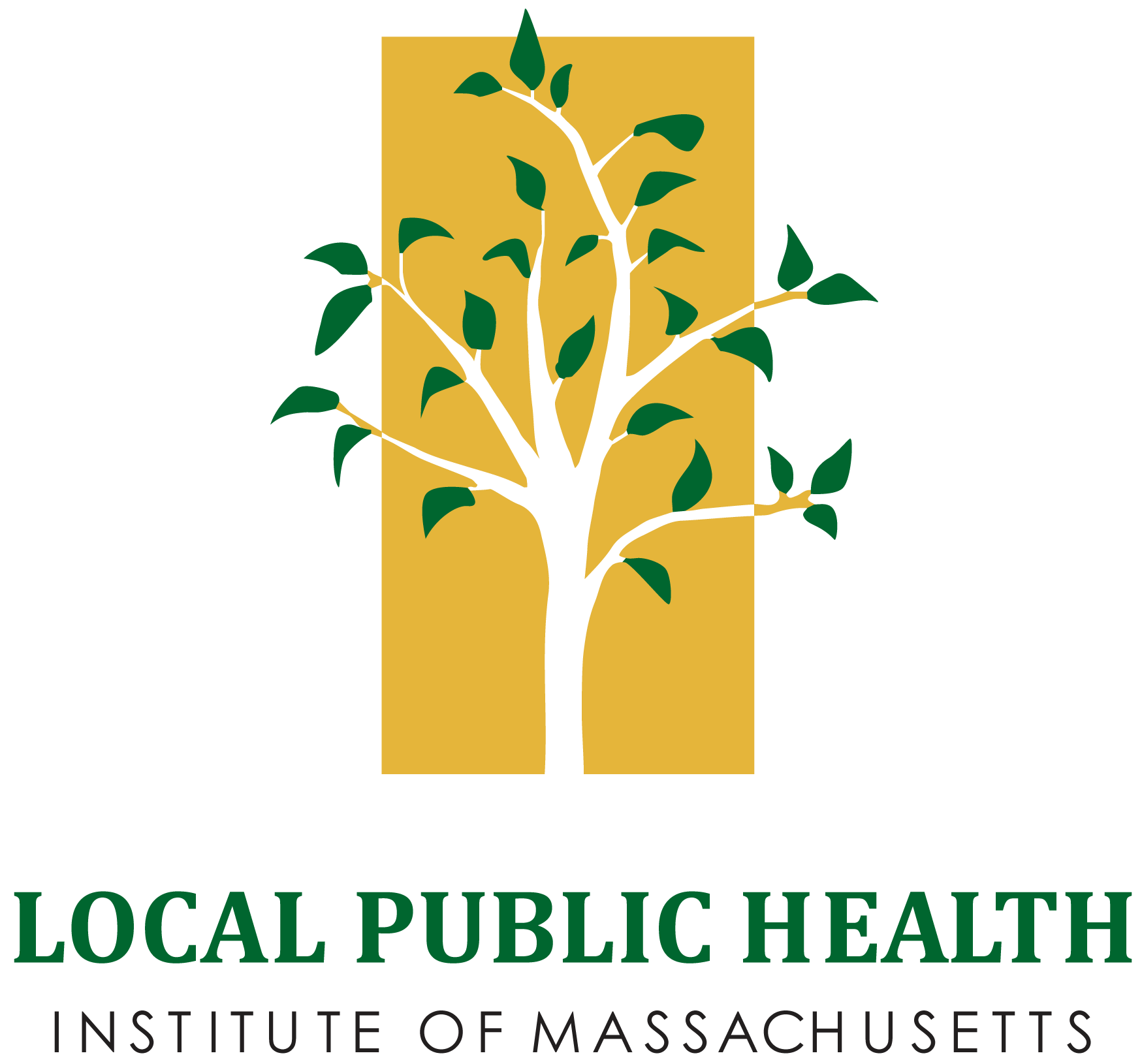
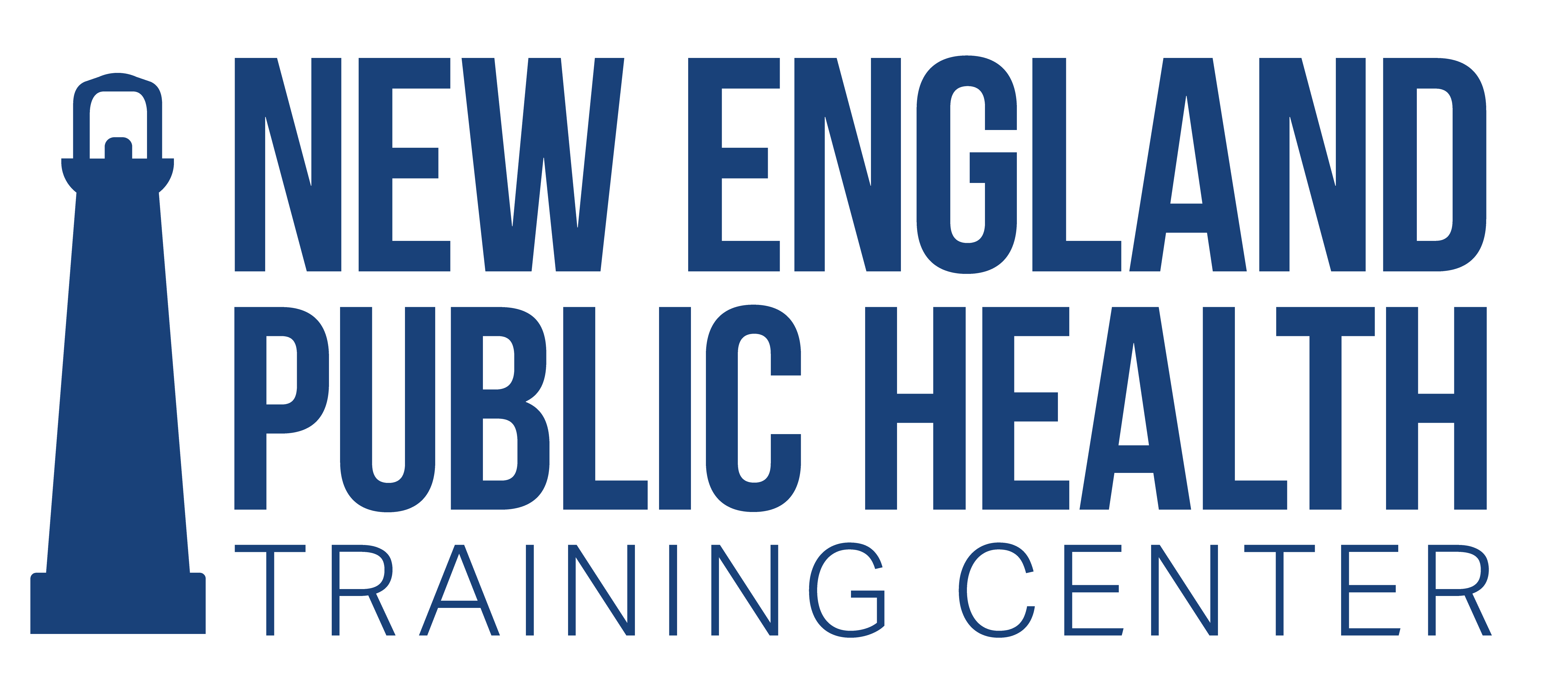
Course Information
- Audience: Public Health Professionals, Community Health Workers, Medical Professionals
- Format: Self-paced
- Price: Free
- Length: 1 hour
- Credential(s) eligible for contact hours:
Sponsored by New England Public Health Training Center (NEPHTC), a designated provider of continuing education contact hours (CECH) in health education by the National Commission for Health Education Credentialing, Inc. This program is designated for Certified Health Education Specialists (CHES) and/or Master Certified Health Education Specialists (MCHES) to receive up to 1 total Category I continuing education contact hours. Maximum advanced-level continuing education contact hours are 0. Provider ID: 1131137 Event ID: PM1131137_DEIFPH
If you are not seeking a CHES/MCHES contact hours, if you complete the post-test and evaluation, you will receive a Certificate of Completion. The Certificate will include the length of the course. - Competencies: Communication Skills
- Learning Level: Awareness
- Supplemental materials: None
- Pre-requisites: None
- Technical Requirements: This training was created with Articulate Storyline. Please refer to the Articulate 360 System Specifications to ensure your system meets the minimum requirements for viewing.
About this course
Effective communication is an essential element of public health efforts. Public health professionals need ways to make health messages easy to understand for all members of the community they serve as health information can often be complex. Infographics are a dynamic way to share information, both in print and digital form. Public health professionals should be able to create effective and well-designed infographics to share important public health messages as a part of their public health communication strategy.
What you'll learn
After completing the training, you will be able to...
- List 4 elements required to develop a good health infographic
- Explain what makes an effective infographic
- Define the "Design Thinking Process"
- Use 2 Plain Language resources to simplify scientific writing
- List the 7 design principles for infographics
- Describe the 4 domains of the CDC Clear Communication Index
- List 2 ways to ensure infographics are Section 508 compliant
- List the 3 steps to test infographics before release
Subject Matter Expert

Ojaswini Bakshi
MPH
Program Director, Local Public Health Institute of Massachusetts
Enrollment and Contact Hours
Note there are two different options for enrolling in this course highlighted in the table below.
The Certificate of Completion will include the length of the module. Generally 50 – 60 minutes is equivalent to 1 contact hour. Contact hours may be applicable towards continuing education requirements for certain credentials. Check with your credentialing body to verify if the topic meets its continuing education requirements.
Acknowledgement: This project is supported by the Health Resources and Services Administration (HRSA) of the U.S. Department of Health and Human Services (HHS) as part of award 2 UB6HP31685‐05‐00 “Public Health Training Centers.” The contents are those of the author(s) and do not necessarily represent the official views of, nor an endorsement, by HRSA, HHS or the U.S. Government.

Marketing Public Health
How can the basic principles of branding and marketing contribute to the success of your public health mission? Learn how to develop an effective marketing communications plan.



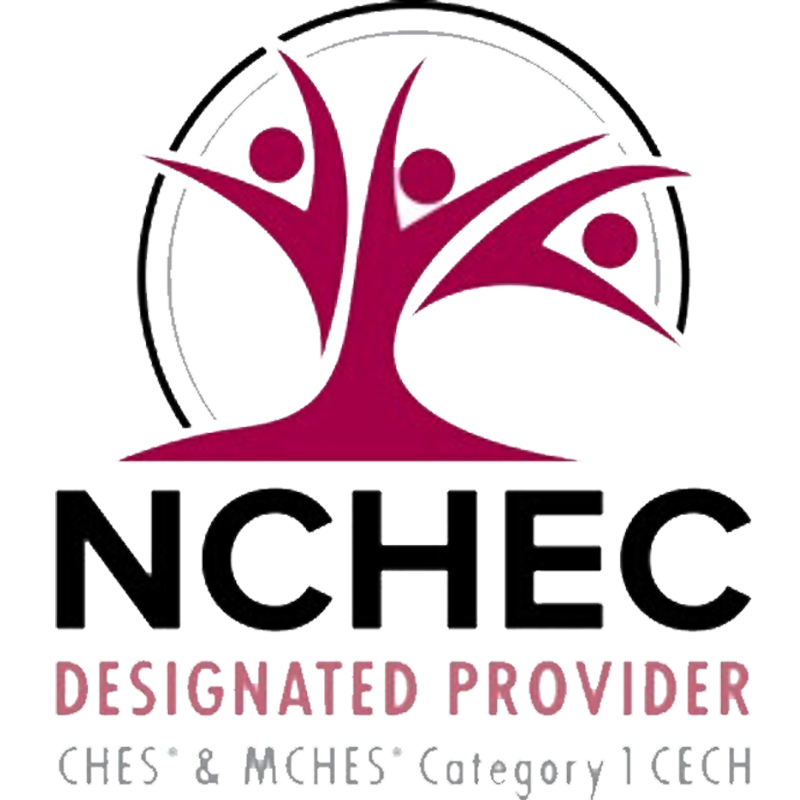
Enroll
Course Information
- Format: Online, self-paced
- Price: Free
- Length: 1 hour
- Credential(s) eligible for contact hours: Sponsored by New England Public Health Training Center (NEPHTC), a designated provider of continuing education contact hours (CECH) in health education by the National Commission for Health Education Credentialing, Inc. This program is designated for Certified Health Education Specialists (CHES) and/or Master Certified Health Education Specialists (MCHES) to receive up to 1 total Category I continuing education contact hours. Maximum advanced-level continuing education contact hours are 1. Provider ID: 1131137 Event ID: SS1131137_MPH.
If you are not seeking CHES/MCHES contact hours, if you complete the evaluation, you will receive a Certificate of Completion. The Certificate will include the length of the course. - Competencies: Management and Finance Skills
- Learning Level: Awareness
- Supplemental materials: none
- Pre-requisites: None
- Technical Requirements: This training was created with Articulate Storyline. Please refer to the Articulate 360 System Specifications to ensure your system meets the minimum requirements for viewing.
About this course
Whether you are managing a single program or an entire public health department, understanding the basic principles of branding and marketing can be crucial to your success. Every program and organization has key stakeholders. The goal of this course is to offer concrete strategies for communicating with those stakeholders in order to support your broader program and organizational goals.
What you'll learn
After completing this course, you will be able to...
- Describe the four pillars of building a strong brand
- Outline the steps for developing an effective marketing communications plan which includes:
- Understanding the mission and goals
- Knowing the audience
- Identifying the core umbrella messaging
- Defining messaging by target audience, and
- Identifying and prioritizing tactics
- Describe the importance of educating the staff and other stakeholders on desired brand behaviors, and
- Identify and track success metrics.
Subject Matter Expert

Michele LevyMarketing Consultant
ML Brand Strategy
Consulting
Enrollment and Contact Hours
The Certificate of Completion will include the length of the module. Generally 50 – 60 minutes is equivalent to 1 contact hour. Contact hours may be applicable towards continuing education requirements for certain credentials. Check with your credentialing body to verify if the topic meets its continuing education requirements.
Having trouble accessing the course? Contact support@nephtc.orgAcknowledgement:
This training was supported by the Massachusetts Department of Public Health (MDPH) with funds made available by the Grant or Cooperative Agreement Number 6 NB01OT009172-01-02, funded by the Centers for Disease Control and Prevention. Its contents are solely the responsibility of the authors and do not necessarily represent the official views of the Centers for Disease Control and Prevention or the Department of Health and Human Services. This project is/was supported by the Health Resources and Services Administration (HRSA) of the U.S. Department of Health and Human Services (HHS) under grant number UB6HP31685 "Regional Public Health Training Center (PHTC) Program." This information or content and conclusions are those of the author and should not be construed as the official position or policy of, nor should any endorsements be inferred by HRSA, HHS or the U.S. Government.



